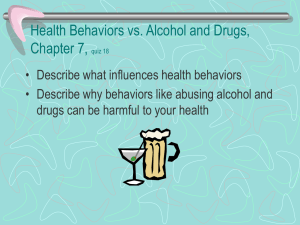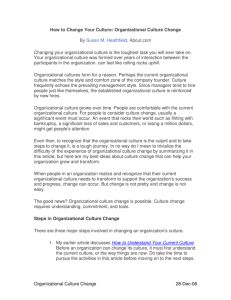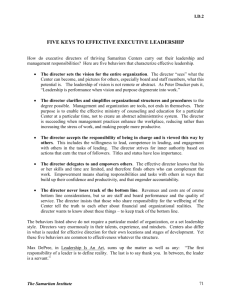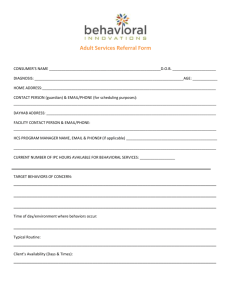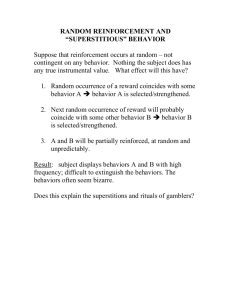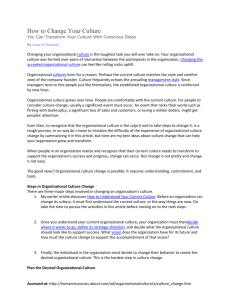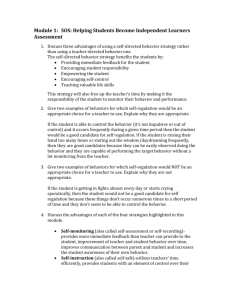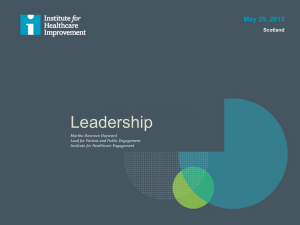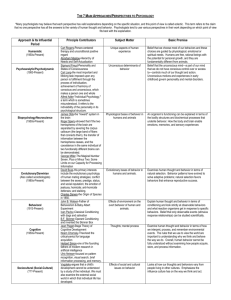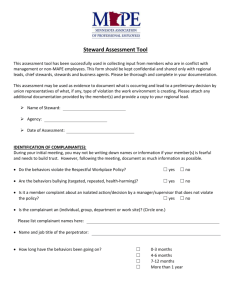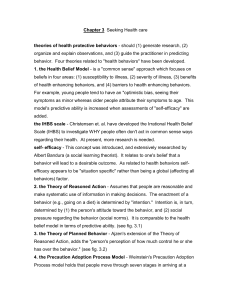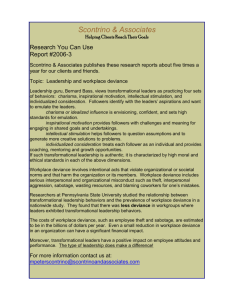Orgaizational test 1 review
advertisement
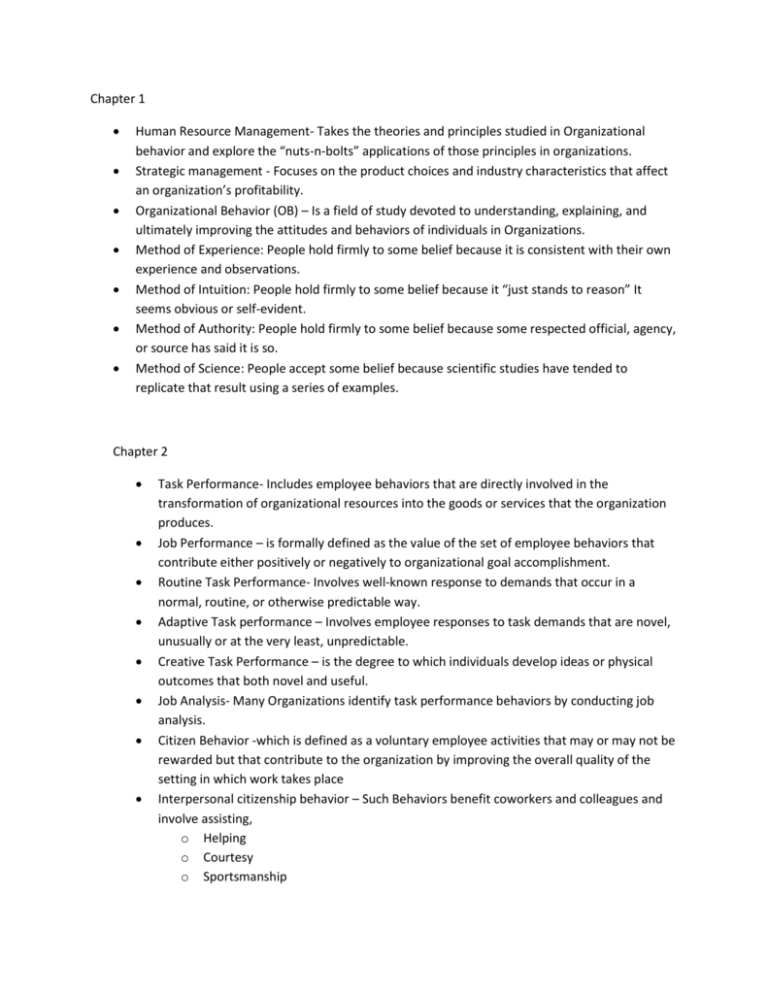
Chapter 1 Human Resource Management- Takes the theories and principles studied in Organizational behavior and explore the “nuts-n-bolts” applications of those principles in organizations. Strategic management - Focuses on the product choices and industry characteristics that affect an organization’s profitability. Organizational Behavior (OB) – Is a field of study devoted to understanding, explaining, and ultimately improving the attitudes and behaviors of individuals in Organizations. Method of Experience: People hold firmly to some belief because it is consistent with their own experience and observations. Method of Intuition: People hold firmly to some belief because it “just stands to reason” It seems obvious or self-evident. Method of Authority: People hold firmly to some belief because some respected official, agency, or source has said it is so. Method of Science: People accept some belief because scientific studies have tended to replicate that result using a series of examples. Chapter 2 Task Performance- Includes employee behaviors that are directly involved in the transformation of organizational resources into the goods or services that the organization produces. Job Performance – is formally defined as the value of the set of employee behaviors that contribute either positively or negatively to organizational goal accomplishment. Routine Task Performance- Involves well-known response to demands that occur in a normal, routine, or otherwise predictable way. Adaptive Task performance – Involves employee responses to task demands that are novel, unusually or at the very least, unpredictable. Creative Task Performance – is the degree to which individuals develop ideas or physical outcomes that both novel and useful. Job Analysis- Many Organizations identify task performance behaviors by conducting job analysis. Citizen Behavior -which is defined as a voluntary employee activities that may or may not be rewarded but that contribute to the organization by improving the overall quality of the setting in which work takes place Interpersonal citizenship behavior – Such Behaviors benefit coworkers and colleagues and involve assisting, o Helping o Courtesy o Sportsmanship Organizational citizenship behavior – o Voice o Civic Virtue o Boosterish Counterproductive behavior – defined as employee behaviors aspects that intentionally hinder organizational goal accomplishment. o Property Deviance –Harm of organization assets o Sabotage-purposeful destruction of equipment o Theft- Another form of property deviance can be just as expensive o Production Deviance- Reducing efficiency of work output. o Wasting Resources – Too many Materials or Too much time to do little work. o Substance Abuse – abuse of drugs or alcohol o Political Deviance – intentionally disadvantage other individuals rather than the larger organization. o Gossiping o Incivility o Personal Aggression o Harassment o Abuse Knowledge Work.
